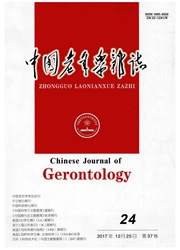

 中文摘要:
中文摘要:
目的探讨内质网应激(ER stress)信号调控对棕榈酸(PA)诱导肝癌细胞凋亡的影响及其机制。方法培养人肝癌细胞SMMC-7721,在采用ER stress抑制剂4-苯丁酸(PBA)和过表达葡萄糖调节蛋白(GRP)78的基础上,利用流式细胞和免疫印迹技术分析ER stress以及GRP78对PA诱导肝癌细胞凋亡的影响。结果 PA诱导肝癌细胞发生ER stress,PBA抑制ER stress并减弱了PA诱导的肝癌细胞凋亡(P〈0.05)。PA和ER stress诱导剂衣霉素(Tun)对ER stress分子标志的诱导水平差异显著(P〈0.05),其中PA诱导的GRP78远低于Tun的诱导作用。过表达GRP78明显抑制了PA诱导的肝癌细胞凋亡(P〈0.05)。结论 GRP78的诱导表达不足在PA介导的肝癌细胞凋亡中起重要作用。
 英文摘要:
英文摘要:
Objective To investigate the effects and mechanisms of endoplasmic reticulum stress on PA-induced apoptosis in human hepatocellular carcinoma cells. Methods Endoplasmic reticulum stress inhibitor PBA was used to decrease endoplasmic reticulum stress,and glucose-regulated protein( GRP) 78 expression vectors were used to increase the protein level of GRP78 in SMMC-7721 cells in response to PA. The effects of endoplasmic reticulum stress and GRP78 on PA-induced SMMC-7721 cells apoptosis were analyzed by flow cytometry and Western blot analysis. Results PA treatment resulted in the activation of endoplasmic reticulum stress. Importantly,PBA pre-treatment obviously decreased PA-mediated apoptosis in SMMC-7721 cells. The pattern of PA-initiated endoplasmic reticulum stress was different from endoplasmic reticulum inducer tunicamycin-induced endoplasmic reticulum stress. GRP78 protein level induced by PA was much lower than that of tunicamycin in SMMC-7721 cells. GRP78 expression vectors transient transfection inhibited PA-induced apoptosis. Conclusions The insufficient induction of GRP78 exerts the pro-apoptotic effect of PA-induced endoplasmic reticulum stress in hepatocellular carcinoma cells.
 同期刊论文项目
同期刊论文项目
 同项目期刊论文
同项目期刊论文
 期刊信息
期刊信息
